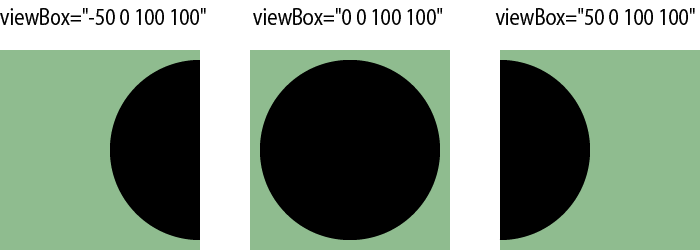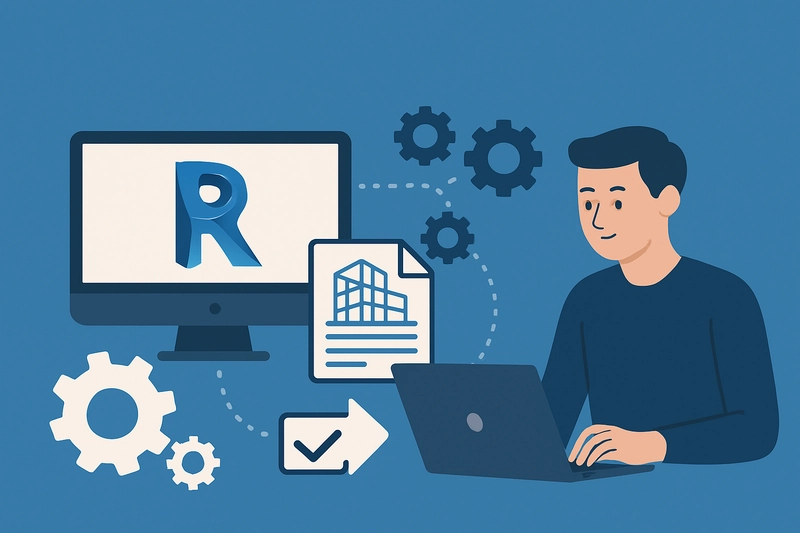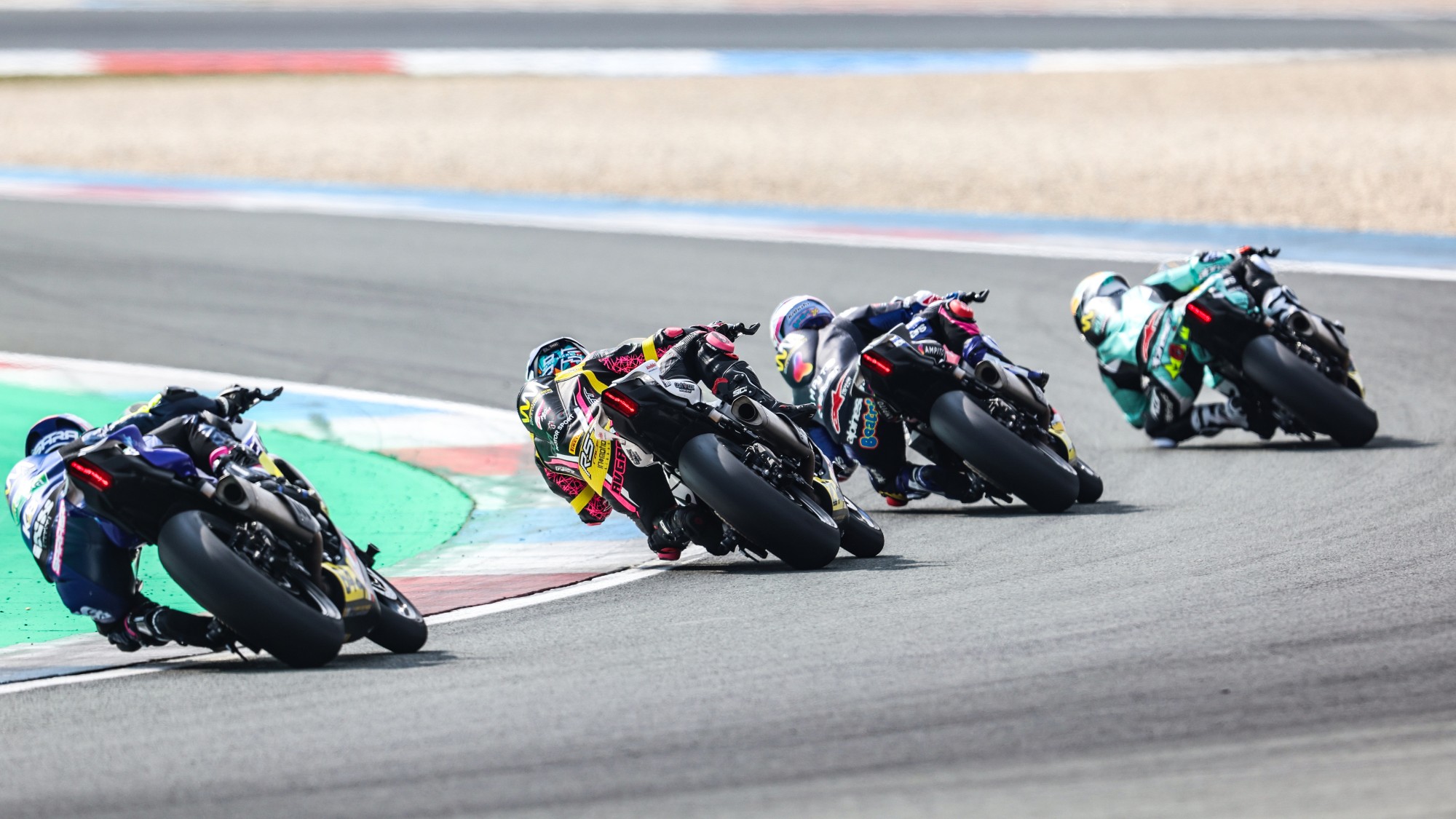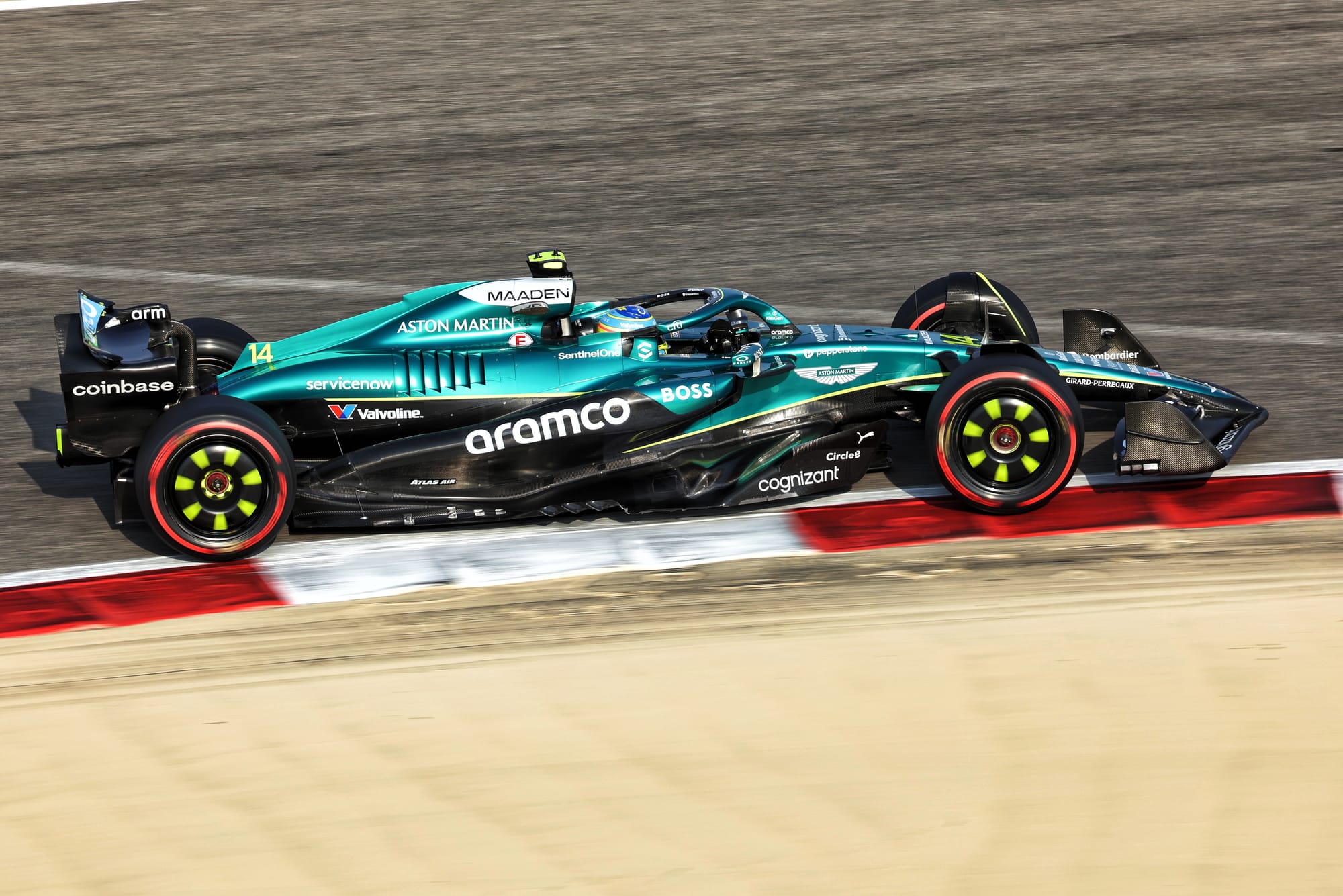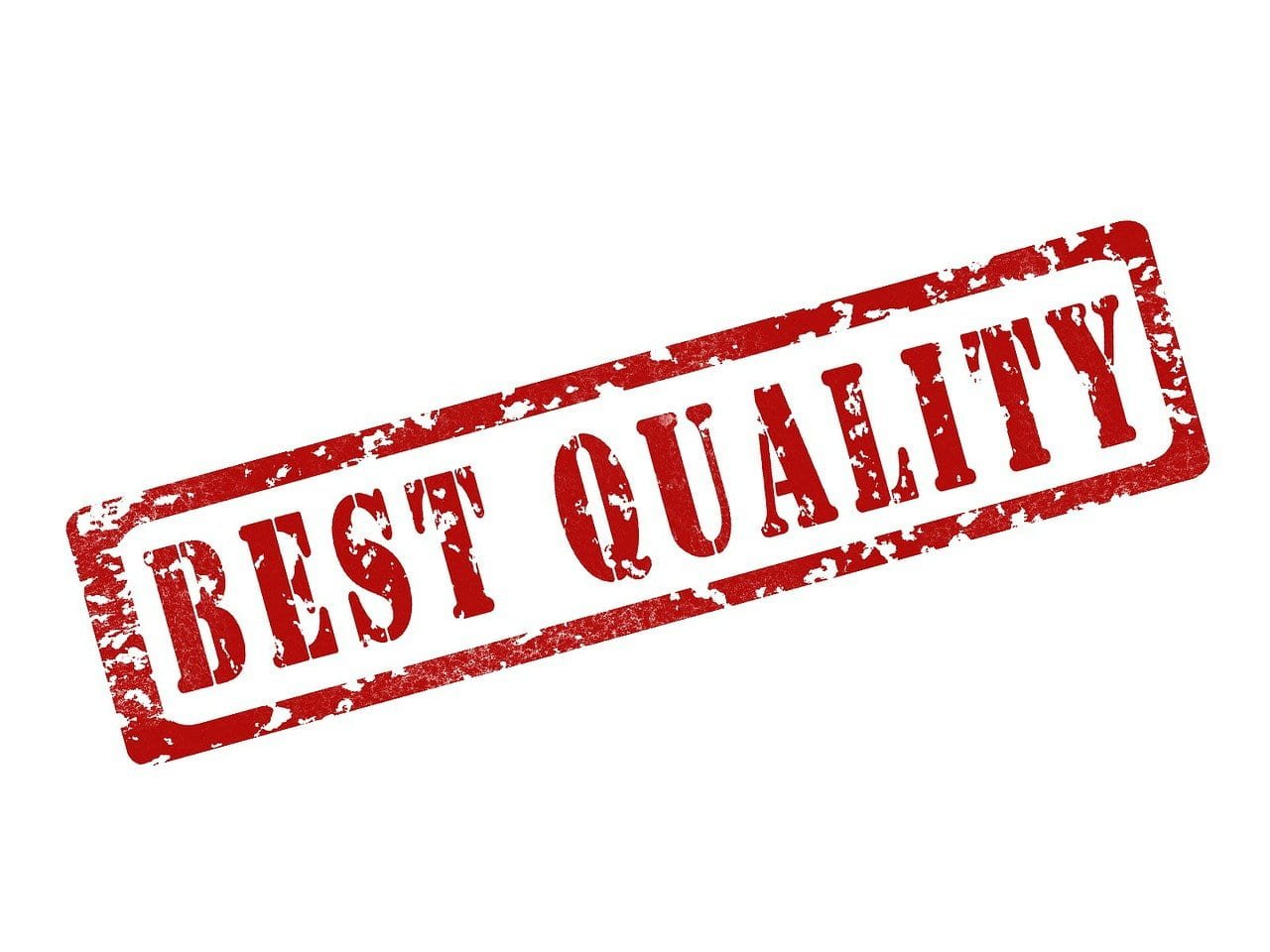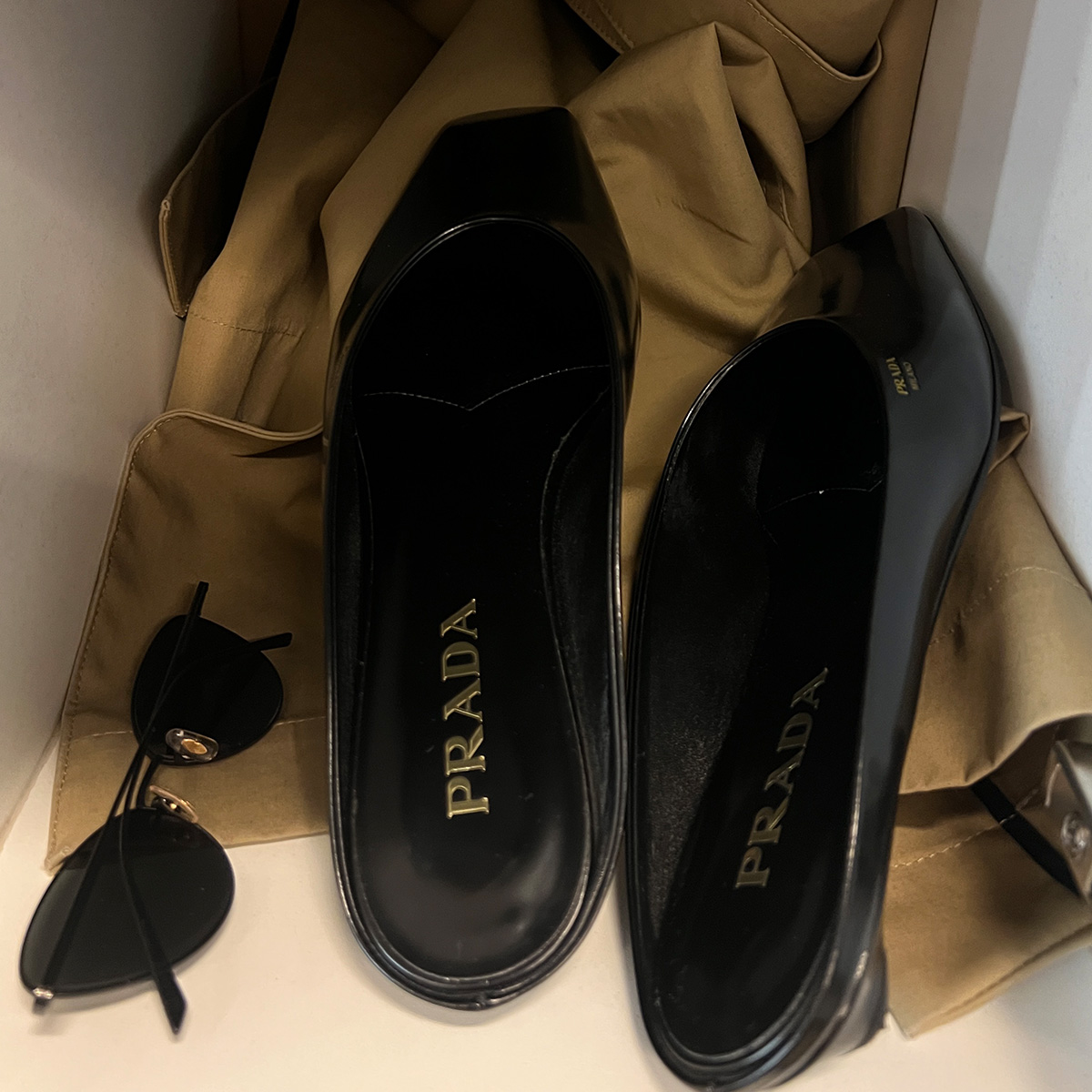10 Best Laptops for Music Production (April 2025)
Having a high performative and powerful laptop is necessary for every music producer. Have a look at our consolidated list of best laptops for music production.
If the only music your current laptop produces is of the fans crying under any minor workload. It’s time to get a new laptop for music production needs.
After countless hours of testing and comparing various laptops, I’ve compiled a list of the ten best laptops for music production. These laptops support industry-standard software like Ableton Live, Logic Pro X, and Pro Tools and will have you nodding your head to lightning-fast processing speeds and crystal-clear audio quality.
Read on and find the perfect music production laptop to hook up with your speakers and microphones!
List of the Best Laptops for Music Production in 2025
-
- Apple MacBook Pro M3 — Best Overall (Editor’s Choice)
- Apple MacBook Air 13-inch — Best Lightweight
- HP Spectre x360 — Best Versatile Device
- Microsoft Surface Pro 9 — Best 2-in-1 Laptop
- ASUS ROG Strix G16 — Best with the Latest Processor
- Dell XPS 17 — Best for Large Screen Lovers
- Acer Swift Go 14 — Best Budget-friendly Laptop
- Samsung Galaxy Book4 Pro — Best for Visual Focused Producers
- Razer Blade 15 Advanced — Best for High-end Music Production
- ASUS Vivobook 16 — Best for Beginners
What is the Best Laptop for Music Production 2025?
I recommend the Apple MacBook Pro M3 for music production, given its exceptional blend of performance, portability, and user-friendliness. Its superior capabilities and functionalities render it a valuable asset for music producers at any level, from beginners to seasoned professionals.
The 2024 MacBook Pro 14-inch (M4 Pro) is the ultimate portable powerhouse for music producers, delivering top-tier performance, AI workflow tools, and studio-grade reliability.
- M4 Pro chip ensures smooth performance
- Long-lasting battery life
- Retina XDR display is ideal for precise editing
- Built-in speakers lack full-range response
- High price point
- Limited flexibility for windows user
My Top 3 Picks
|
Primary Rating:
4.9
|
Primary Rating:
4.7
|
Primary Rating:
4.6
|
|
|
|
$1,840.00
|
|
Screen Size:
14.2-inch
|
Screen Size:
13-inch
|
Screen Size:
15.6-inch
|
|
RAM:
24GB
|
RAM:
16GB LPDDR5
|
RAM:
16GB DDR4
|
|
Storage:
512GB SSD
|
Storage:
256GB SSD
|
Storage:
512GB SSD
|
|
Processor:
Apple M4 Pro
|
Processor:
Intel Core i7
|
Processor:
Intel Core i7-10875H
|
|
Pros:
|
Pros:
|
Pros:
|
- Long-lasting battery life
- Retina XDR display
- Smooth performance with demanding DAWs and plugins
- Lightweight and versatile
- Sharp 120Hz touchscreen
- Thunderbolt 4 and Wi-Fi 6E
- Powerful CPU and GPU
- Fast and responsive display
- Great port selection including Thunderbolt 3
Detailed Overview of 10 Best Laptops For Music Production
Below, I have detailed my experience with the best laptops for recording music and production I have used.
1. Apple MacBook M4 Pro — Best Overall (Editor’s Choice)

The overall best laptop for music production
CPU: Apple M4 Pro (12-core) | RAM: 24GB Unified Memory | Storage: 512GB SSD | Display: 14.2-inch Liquid Retina XDR (3024 x 1964) | GPU: 16-core Integrated GPU | Battery: Up to 18 hours
For music producers working in the Apple ecosystem, the 2024 MacBook Pro 14-inch is the ultimate studio companion. Fueled by Apple’s powerful M4 Pro chip, this laptop is built for running resource-intensive DAWs, real-time plugins, and multitasking — all without missing a beat.
One of the highlights for producers is the new integration with Apple Intelligence. From generating lyric ideas to organizing your creative workflow, these AI features aim to support your productivity in subtle but meaningful ways. And thanks to Apple’s industry-leading privacy standards, your creative work stays fully secure.
Performance-wise, this machine is a powerhouse. During sessions in Logic Pro and Ableton Live, the 24GB of unified memory handled multiple plugins, tracks, and virtual instruments without a hiccup. Audio exports were fast, latency was virtually non-existent, and the system stayed cool even during extended production marathons.
The 14.2-inch Liquid Retina XDR display really shines for mixing and mastering. With its incredible color accuracy and high brightness, it’s easy to spot details in your audio waveforms or plugin interfaces — even in bright environments.
Another plus is its all-day battery life. For mobile producers or those who like to work in cafés, this MacBook holds power longer than most other performance laptops on the market. And with ultra-fast SSD storage and macOS optimizations, project files load in seconds.
That said, while the built-in six-speaker system sounds crisp and clear, it’s still no replacement for studio monitors or quality headphones when mixing low-end-heavy tracks. And while macOS is loved by many, those who rely on Windows-only plugins might find the ecosystem a bit limiting.
| PROS | CONS |
 M4 Pro chip ensures smooth performance with demanding DAWs and plugins. M4 Pro chip ensures smooth performance with demanding DAWs and plugins. |
 Built-in speakers lack full-range response — best used with external monitors. Built-in speakers lack full-range response — best used with external monitors. |
 Long-lasting battery life for mobile production sessions. Long-lasting battery life for mobile production sessions. |
 High price point compared to similarly spec’d Windows laptops. High price point compared to similarly spec’d Windows laptops. |
 Retina XDR display is ideal for precise editing and detailed plugin views. Retina XDR display is ideal for precise editing and detailed plugin views. |
 Limited flexibility for producers who use Windows-only software. Limited flexibility for producers who use Windows-only software. |
 Seamless Apple ecosystem integration for quick file sharing and device sync. Seamless Apple ecosystem integration for quick file sharing and device sync. |
Latest Price on Amazon:
2. Apple MacBook Air 13-inch (2024) — Best Lightweight macOS Laptop

Best portable macOS laptop for casual and mobile music production
CPU: Apple M3 (8-core) | RAM: 16GB Unified Memory | Storage: 512GB SSD | Display: 13.6-inch Liquid Retina (2560 x 1664) | GPU: 10-core Integrated GPU | Battery: Up to 18 hours
The 2024 MacBook Air with M3 chip is a solid choice for music producers who want a lightweight, reliable laptop for everyday production tasks. It runs DAWs like Logic Pro and GarageBand smoothly and supports Apple Intelligence features that help streamline writing and organization during the creative process.
With 16GB of unified memory and 512GB of SSD storage, it can handle multiple tracks, virtual instruments, and plugins without slowdowns. The Liquid Retina display is sharp and bright, making it easy to navigate sessions and plugins.
The four-speaker system with Spatial Audio provides good sound for casual listening and rough mixing. For more detailed work, external headphones or monitors are recommended.
It weighs just 2.7 pounds, making it ideal for mobile setups, remote sessions, and traveling. Battery life lasts up to 18 hours, which is useful for long workdays without needing to charge.
This model has two Thunderbolt ports, a MagSafe charging port, and a headphone jack. It supports one external display (two when the lid is closed). The built-in Touch ID adds security and convenience.
This MacBook Air doesn’t include a fan, so it stays quiet but may get warm during long, intensive sessions. It’s best suited for small to mid-sized music projects.
| PROS | CONS |
 M3 chip and 16GB RAM run most music production software smoothly. M3 chip and 16GB RAM run most music production software smoothly. |
 May get warm during extended high-load use. May get warm during extended high-load use. |
 Lightweight and easy to carry. Lightweight and easy to carry. |
 Limited to two Thunderbolt ports. Limited to two Thunderbolt ports. |
 Long battery life for on-the-go sessions. Long battery life for on-the-go sessions. |
 Not ideal for large, complex sessions. Not ideal for large, complex sessions. |
 Clear display and good built-in audio for casual editing. Clear display and good built-in audio for casual editing. |
Latest Price on Amazon:
3. HP Spectre x360 — Best Versatile Laptop
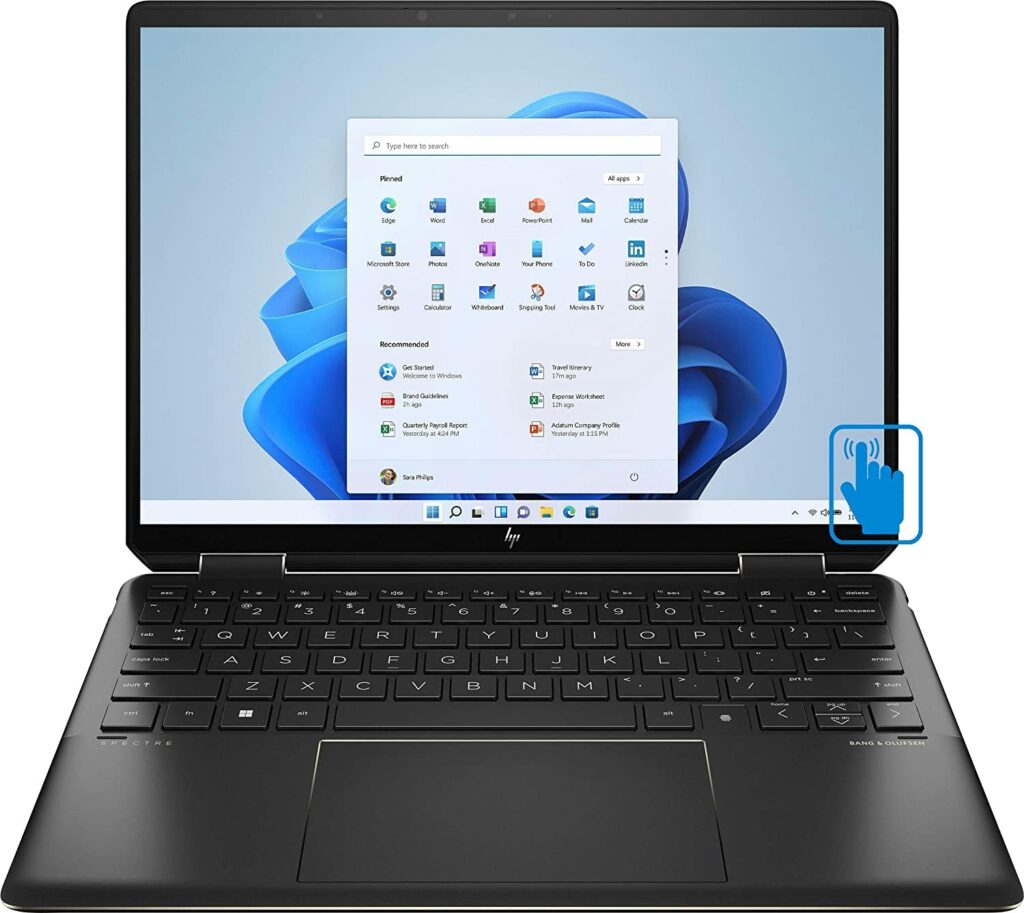
Best music production laptop for various professionals
CPU: 2.3 GH Intel 12th Gen i7-12700H | RAM: 16GB | Storage: 1TB SSD | Display: 16-inch 3072 x 1920 Pixels | GPU: Intel Iris Xe Graphics | Battery: Up to 15 hours
The HP Spectre x360 caught my attention with its performance and versatility, which seemed too good to pass up. And after putting it through its paces, I can confidently say it lives up to the hype.
The laptop’s processor, an Intel 12th Gen i7 CPU running at 2.3 GHz (with turbo boosts up to 4.7 GHz), handled all my software like Ableton Live, FL Studio, and Logic Pro without sweat. With 16GB DDR4 RAM and a 1TB NVMe PCIe M.2 SSD, it ran smoothly, letting me focus on making music instead of waiting for things to load.
The 16-inch display was another highlight. With a resolution of 3072 x 1920 pixels and 100% sRGB coverage, it was a step up from what I was used to. The low blue light emission and multitouch capabilities made long studio sessions easier on my eyes and fingers. I sometimes used the MPP2.0 stylus for more precise control over my music software.
The 5MP “True Vision” IR webcam was cool, too. It had all sorts of features, like Face Recognition for easy logins and sliders for adjusting things like brightness and white balance. The GlamCam panel even had a Beauty Mode to make me look good on video calls. In terms of battery life, this laptop lasted forever on a single charge, around 17 hours!
During my use, I did notice some drawbacks. The Intel Iris Xe Graphics wasn’t enough for heavy-duty graphics work, and due to the limited selection of ports, I had to use adapters for some of my music gear.
Looking back, though, the HP Spectre x360 was a solid value option for music production. It was powerful, the display was top-notch, and it was easy to take with me wherever I went.
| PROS | CONS |
 High-performance processor for running demanding music software. High-performance processor for running demanding music software. |
 Limited port selection. Limited port selection. |
 Large and fast storage for storing and accessing large audio files. Large and fast storage for storing and accessing large audio files. |
|
 High-quality audio output for accurate monitoring and mixing. High-quality audio output for accurate monitoring and mixing. |
|
 Portable and lightweight design for easy transportation between recording sessions. Portable and lightweight design for easy transportation between recording sessions. |
|
 Plenty of RAM for smooth multitasking while working on music projects. Plenty of RAM for smooth multitasking while working on music projects. |
Video Review:
Video Credit: Matthew Moniz / YouTube
Latest Price on Amazon:
4. Microsoft Surface Pro 9 — Best 2-in-1 Laptop

Best 2-in-1 Windows laptop for mobile music creators and flexible setups
CPU: Intel Core i7 (12th Gen) | RAM: 16GB LPDDR5 | Storage: 256GB SSD | Display: 13-inch PixelSense Touchscreen (2880 x 1920) | GPU: Intel Iris Xe Graphics | Battery: Up to 15.5 hours
The Microsoft Surface Pro 9 is a strong pick for producers who value flexibility, portability, and Windows-based production software. This 2-in-1 device functions as both a tablet and a laptop, giving you a touchscreen workflow when sketching out ideas or navigating your DAW with a more hands-on feel.
With a 12th Gen Intel Core i7 processor and 16GB of RAM, it handles standard music production tasks well — including multi-track sessions, VST plugins, and real-time audio editing. Paired with the Surface Pro Signature Mechanical Keyboard, it transforms into a fully functional studio laptop while still remaining lightweight and ultra-portable at just 1.9 pounds.
The 13-inch PixelSense display supports Dolby Vision IQ and has a 120Hz refresh rate, providing sharp visuals and smooth interaction when using touch gestures. It’s especially handy for quick automation adjustments or working with virtual instruments.
Battery life is solid, with up to 15.5 hours on a full charge, allowing you to produce unplugged for extended sessions. It includes Thunderbolt 4 ports, which support high-speed data transfers — useful for external audio interfaces, SSDs, and MIDI gear.
This bundle also includes a 1-year extended warranty and runs on Windows 11 Pro, giving you access to a wide range of music production software like FL Studio, Pro Tools, Cubase, and more.
While it’s powerful for most production needs, the 256GB SSD may fill up quickly with large sample libraries or project files, so pairing it with external storage is a good idea.
| PROS | CONS |
 Lightweight and versatile 2-in-1 design. Lightweight and versatile 2-in-1 design. |
 Limited internal storage for larger music libraries. Limited internal storage for larger music libraries. |
 Sharp 120Hz touchscreen with Dolby Vision support. Sharp 120Hz touchscreen with Dolby Vision support. |
 Not ideal for very heavy plugin chains or complex arrangements. Not ideal for very heavy plugin chains or complex arrangements. |
 Thunderbolt 4 and Wi-Fi 6E for fast, modern connectivity. Thunderbolt 4 and Wi-Fi 6E for fast, modern connectivity. |
|
 Comes with keyboard and extended warranty included. Comes with keyboard and extended warranty included. |
Latest Price on Amazon:
5. ASUS ROG Strix G16 — Best with the Latest Processor
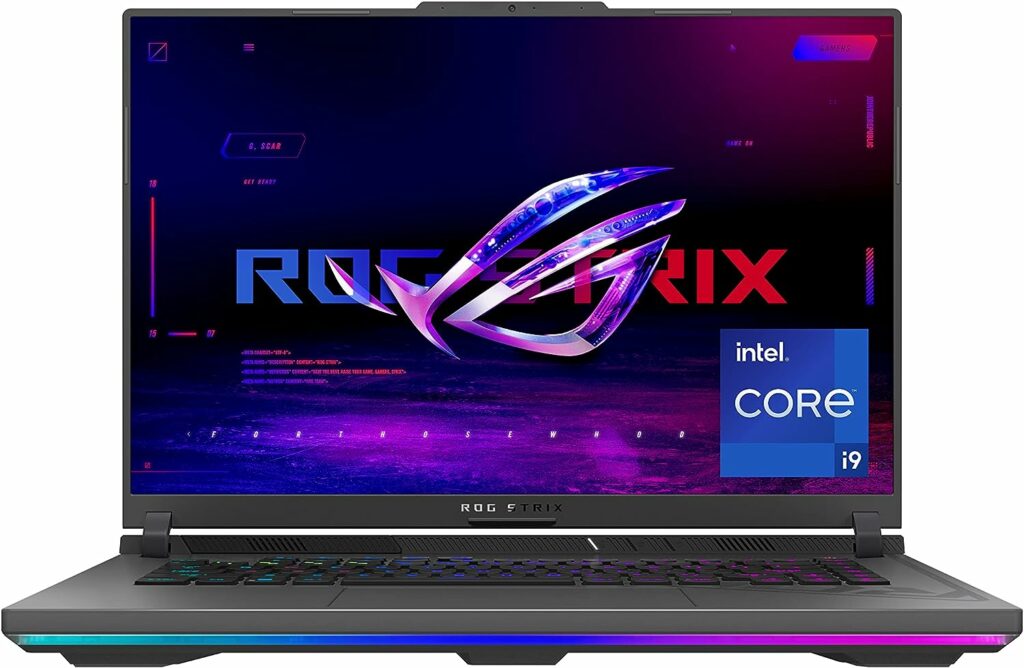
Best laptop for Ableton Live and various music production software
CPU: Intel Core i9-13980HX | RAM: 16GB | Storage: 1TB SSD | Display: 16-inch 1920 x 1200 pixels | GPU: NVIDIA GeForce RTX 4070 | Battery: Up to 4-5 hours
In my line of work, having a powerful processor isn’t just a luxury; it’s a necessity. That’s why the ASUS ROG Strix G16 blew me away with its Intel Core i9-13980HX processor, allowing me to handle the most demanding audio projects without a hitch.
The laptop’s 16GB of DDR5-4800MHz memory and 1TB of PCIe 4×4 storage were exceptional for multitasking and handling large project files. I particularly appreciated the lightning-fast loading times, which significantly reduced downtime and allowed for a smoother creative process.
One of the Strix G16’s most impressive aspects was its cooling system. Equipped with Thermal Grizzly’s Conductonaut Extreme liquid metal and three intake fans, it maintained optimal performance temperatures even under heavy loads.
The Strix G16’s visual experience was equally commendable. Its FHD 165Hz panel, covering 100% of the sRGB color space and featuring Dolby Vision and Adaptive-Sync, made it not just a tool for music production but also an excellent device for video editing and content review.
However, during my tenure with the Strix G16, its hefty weight of 10.16 pounds was a noticeable drawback, especially for a user valuing portability. Its size and weight made it less practical for on-the-go production or for those who frequently work in different locations.
To conclude, ASUS ROG Strix G16’s robust performance, advanced cooling system, and superior audio-visual features made it a standout choice for producing music at a professional level.
“The Asus ROG Strix G16 is a great all-round 16-inch laptop, being powerful, exceptionally stylish and packed with useful features.” [Dominic Bayley, pcworld]
| PROS | CONS |
 High-performance processor and GPU for handling demanding audio software and plugins. High-performance processor and GPU for handling demanding audio software and plugins. |
 Heavy and bulky design may not be ideal for on-the-go production or travel. Heavy and bulky design may not be ideal for on-the-go production or travel. |
 Ample storage for large audio files and sample libraries. Ample storage for large audio files and sample libraries. |
 Short battery life may limit the use of the laptop for extended periods. Short battery life may limit the use of the laptop for extended periods. |
 Fast loading times for efficient workflow. Fast loading times for efficient workflow. |
|
 High-quality display for accurate visual representation of audio software and production projects. High-quality display for accurate visual representation of audio software and production projects. |
|
 Good connectivity options for external audio interfaces and other peripherals. Good connectivity options for external audio interfaces and other peripherals. |
Latest Price on Amazon:
6. Dell XPS 17 — Best for Large Screen Lovers
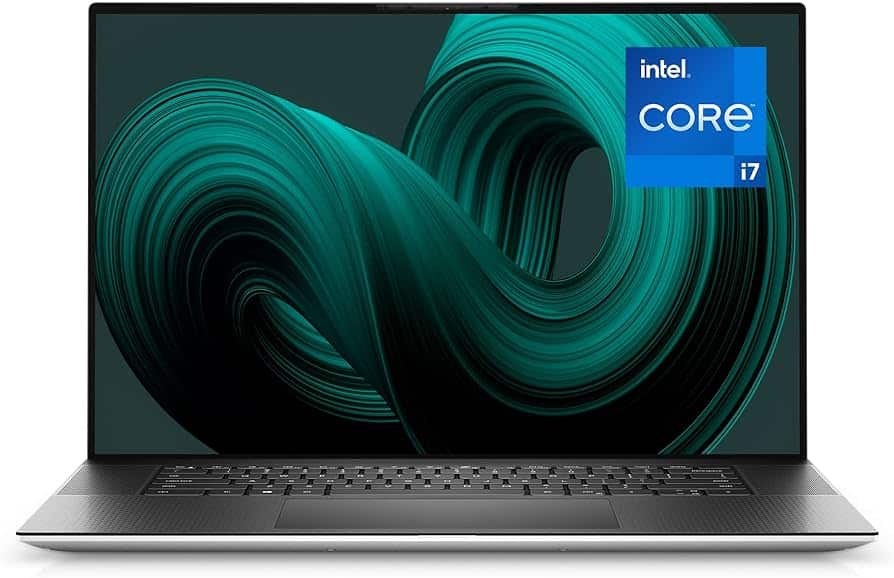
Best large laptop for music production
CPU: Intel Core i9-12900HK | RAM: 32 GB | Storage: 1TB SSD | Display: 17-inch 3840 x 2400 pixels | GPU: NVIDIA GeForce RTX 3060| Battery: Up to 10 hours
The Dell XPS 17 became one of my favorite tools because of its large screen. Its massive 17-inch display allowed me to see everything clearly, from the tiny details in my tracks to the complex arrangements that make my music come alive.
Packing a 12th-gen Intel Core i9-12900HK processor and 32GB of DDR5 memory, it handled everything from hefty DAW sessions to layers of synths and effects without a hitch. The graphics, powered by an NVIDIA GeForce RTX 3060, ensured all my visual needs were met, especially when juggling multiple plugins and software interfaces.
But what made a difference was the XPS 17’s audio capabilities. With Waves Nx 3D Audio tuned by Jack Joseph Puig, it felt like I was mixing in a professional studio. This, combined with a 1TB SSD, meant I had the space for all my files and could also access them instantly—no waiting around.
However, the XPS 17 comes with its challenges. Its hefty price tag and weight made it a significant investment and not the easiest to lug around. Yet, for the time I used it, I was willing to make compromises for the unmatched performance and workspace it offered.
Reflecting on my experience, the Dell XPS 17 set a high bar for what I expect in a music production laptop. Its blend of a large screen, top-notch performance, and immersive audio made it an invaluable part of my creative process. For anyone prioritizing a large display alongside stellar performance in their music production journey, the XPS 17 is certainly worth considering.
| PROS | CONS |
 Powerful 12th Gen Intel Core i9 processor and 32GB of DDR5 RAM for smooth and efficient multitasking. Powerful 12th Gen Intel Core i9 processor and 32GB of DDR5 RAM for smooth and efficient multitasking. |
 The price point of the Dell XPS 17 may be higher than other laptops with similar specifications. The price point of the Dell XPS 17 may be higher than other laptops with similar specifications. |
 Waves Nx 3D Audio feature creates a three-dimensional soundscape of vibrant audio. Waves Nx 3D Audio feature creates a three-dimensional soundscape of vibrant audio. |
 Difficult to use in smaller workspaces or on crowded tables. Difficult to use in smaller workspaces or on crowded tables. |
 NVIDIA GeForce RTX 3060 6GB GDDR6 graphics card delivers unparalleled performance when running popular digital audio workstations (DAWs). NVIDIA GeForce RTX 3060 6GB GDDR6 graphics card delivers unparalleled performance when running popular digital audio workstations (DAWs). |
|
 Long battery life of up to 10 hours allows extended use without needing a power outlet. Long battery life of up to 10 hours allows extended use without needing a power outlet. |
Video Review:
Video Credit: The Tech Chap /YouTube
Latest Price on Amazon:
7. Acer Swift Go 14 — Best Budget-Friendly Laptop

Best affordable Windows laptop for AI-powered music production
CPU: Intel Core Ultra 7 155H (16 cores) | RAM: 16GB LPDDR5X | Storage: 512GB SSD | Display: 14-inch 1920 x 1200 IPS Touchscreen | GPU: Intel ARC Graphics | Battery: Up to 12.5 hours
The Acer Swift Go 14 stands out as a great choice for producers who want an affordable, lightweight Windows laptop that’s capable of running modern DAWs and even leveraging emerging AI tools in music production. Powered by the latest Intel Core Ultra 7 processor with 16 cores and Intel ARC graphics, this machine handles multitasking and plugin-heavy sessions with ease.
I found the 14-inch WUXGA touchscreen with 100% sRGB color support to be a useful tool during production, especially when editing waveforms or fine-tuning effects. The display strikes a nice balance between sharp visuals and portability, making it easy to take your projects on the go without compromising on screen real estate.
With 16GB of LPDDR5X RAM and a 512GB Gen 4 SSD, load times were quick and workflow stayed smooth, even with large sample libraries or when switching between multiple VSTs. It also includes Thunderbolt 4 ports, USB-C, and HDMI, so connecting audio interfaces, external drives, or a second monitor is simple and fast.
The built-in AI features like Intel AI Boost and Windows Copilot are nice additions for creative workflows, and the 1440p QHD webcam and AI-powered audio/video enhancements make remote collaboration and livestreaming clearer and more professional.
Battery life held up well at around 12.5 hours, which is plenty for mobile sessions or long editing days. Plus, the laptop charges quickly, which helps when you’re moving between sessions and don’t have time for long recharge breaks.
While the integrated Intel ARC graphics aren’t built for heavy video rendering or gaming, they’re more than capable for audio production and light visual editing. And while 512GB of storage is solid, you might want to expand via external SSDs if you work with large project files.
| PROS | CONS |
 Fast Intel Ultra 7 processor with AI support for enhanced creative workflows. Fast Intel Ultra 7 processor with AI support for enhanced creative workflows. |
 Integrated graphics may not handle advanced visual projects well. Integrated graphics may not handle advanced visual projects well. |
 Lightweight and portable for mobile music sessions. Lightweight and portable for mobile music sessions. |
 512GB storage may fill up quickly with large libraries and files. 512GB storage may fill up quickly with large libraries and files. |
 Sharp, color-accurate touchscreen for detailed editing. Sharp, color-accurate touchscreen for detailed editing. |
|
 Strong connectivity with Thunderbolt 4, USB-C, HDMI, and microSD. Strong connectivity with Thunderbolt 4, USB-C, HDMI, and microSD. |
Latest Price on Amazon:
8. Samsung Galaxy Book4 Pro — Best AMOLED Laptop for Visual-Focused Producers

Best Windows laptop for music production
CPU: Intel Core Ultra 7 155H | RAM: 16GB LPDDR5 | Storage: 1TB SSD | Display: 16-inch 3K AMOLED Touchscreen (2880 x 1800) | GPU: Intel ARC Graphics | Battery: 76Wh, Up to 15 hours (typical use)
The Samsung Galaxy Book4 Pro (2024) is ideal for music producers who prioritize both visual clarity and performance. Powered by the Intel Core Ultra 7 processor and equipped with Intel ARC graphics, this laptop runs DAWs smoothly while also providing stunning visual feedback through its 16-inch AMOLED touchscreen.
The 3K resolution and AMOLED panel bring plugins, waveforms, and mix sessions to life with vibrant color accuracy and crisp detail, especially helpful when working with visually detailed interfaces in apps like FL Studio, Ableton Live, or Cubase.
With 16GB LPDDR5 RAM and a 1TB SSD, the Galaxy Book4 Pro easily handles heavy sample libraries, VST instruments, and large project files without stuttering or slowdown. Boot-up and file access are snappy, and multitasking across apps remains fluid even during demanding sessions.
At 3.44 lbs and just 0.49 inches thick, this laptop is slim and light enough to carry to studios or sessions on the go. The 76Wh battery offers long-lasting power, and fast charging keeps you moving without long waits. It’s also packed with modern connectivity, including Thunderbolt ports, Bluetooth, and Wi-Fi, making it easy to integrate your interface, MIDI controller, or external storage.
Security is another strong suit, with Samsung Knox and Secured Core PC features designed to keep your creative content and sensitive files protected. If you’re a music producer who also dabbles in content creation or simply values a brilliant display, this is a top-tier pick.
| PROS | CONS |
 Gorgeous 3K AMOLED touchscreen is perfect for visual-heavy music production. Gorgeous 3K AMOLED touchscreen is perfect for visual-heavy music production. |
 Integrated graphics may not suit heavy video rendering alongside music tasks. Integrated graphics may not suit heavy video rendering alongside music tasks. |
 Powerful Intel Ultra 7 processor ensures smooth plugin performance. Powerful Intel Ultra 7 processor ensures smooth plugin performance. |
 Slightly heavier than ultra-light competitors. Slightly heavier than ultra-light competitors. |
 Large 1TB SSD gives you plenty of room for samples and projects. Large 1TB SSD gives you plenty of room for samples and projects. |
|
 Long battery life with fast charging support. Long battery life with fast charging support. |
Latest Price on Amazon:
9. Razer Blade 15 Advanced — Best Performance Laptop for High-End Music Production

Best high-performance laptop for producers using intensive plugins
CPU: 10th Gen Intel Core i7-10875H | RAM: 16GB DDR4 | Storage: 512GB SSD | Display: 15.6-inch Full HD 300Hz (1920 x 1080) | GPU: NVIDIA GeForce RTX 2070 Super Max-Q | Battery: Up to 7 hours
If your music production sessions often involve large project files, multiple VSTs, and real-time audio rendering, the Razer Blade 15 Advanced offers the kind of raw power needed to keep up. This machine isn’t just a gaming laptop—it’s a production workhorse built for professionals who demand low latency and high performance from their gear.
Under the hood, it packs a 10th Gen Intel Core i7-10875H 8-core processor that clocks up to 5.1GHz, giving you the headroom to run demanding DAWs like Pro Tools, Ableton Live, and FL Studio with heavy plugin chains. Paired with the NVIDIA RTX 2070 Super Max-Q, it’s also well-suited for producers working with visually demanding plugins, 3D audio environments, or scoring to video.
The 15.6-inch Full HD display with a 300Hz refresh rate isn’t just built for gaming — it delivers sharp, fluid visuals that are excellent for timeline-based work. Whether you’re editing waveforms, automating effects, or syncing audio to visuals, the clarity and responsiveness of this screen help reduce fatigue and increase precision.
The 16GB DDR4 RAM and 512GB SSD strike a good balance between speed and storage for most music creators. Boot times and project loads are fast, and there’s room for expansion if your sample libraries outgrow the drive.
At just 0.7 inches thin, the CNC aluminum chassis gives it a premium, durable feel without adding bulk. The built-in Chroma RGB keyboard not only looks great but also makes nighttime sessions easier with customizable lighting.
Connectivity options include Thunderbolt 3, USB 3.0, HDMI, and more, making it easy to hook up MIDI controllers, audio interfaces, external drives, and studio monitors without needing adapters.
The only trade-offs are portability and heat. Weighing 4.4 pounds, it’s heavier than ultraportables, and you’ll want to use a cooling stand during longer sessions to maintain top performance.
| PROS | CONS |
 Powerful CPU and GPU ideal for advanced music production and scoring. Powerful CPU and GPU ideal for advanced music production and scoring. |
 Slightly heavy and less portable compared to ultralight options. Slightly heavy and less portable compared to ultralight options. |
 Fast and responsive display makes waveform editing and timeline work smoother. Fast and responsive display makes waveform editing and timeline work smoother. |
 Can run hot under heavy loads; external cooling may be necessary. Can run hot under heavy loads; external cooling may be necessary. |
 Great port selection including Thunderbolt 3 for studio gear. Great port selection including Thunderbolt 3 for studio gear. |
|
 Premium build with a professional, minimal design. Premium build with a professional, minimal design. |
Latest Price on Amazon:
10. ASUS Vivobook 16 — Best Entry-Level Laptop for Music Producers on a Budget

Best affordable laptop for beginner music production
CPU: AMD Ryzen 5 5625U (6-core/12-thread, up to 4.3GHz) | RAM: 8GB DDR4 | Storage: 512GB SSD | Display: 16-inch WUXGA 1920 x 1200, 16:10 Aspect Ratio | GPU: AMD Radeon Graphics | Battery: Up to 8 hours (varies by use)
The ASUS Vivobook 16 is a solid pick for beginners or budget-conscious producers who need reliable performance without the premium price tag. Powered by the AMD Ryzen 5 5625U processor and AMD Radeon integrated graphics, this laptop offers enough muscle to comfortably run music production software like FL Studio, Cakewalk, or Reaper for songwriting, beatmaking, and light mixing tasks.
The 16-inch WUXGA display with a 16:10 aspect ratio provides more vertical screen space, which is helpful when managing multiple tracks in your DAW or navigating plugin-heavy sessions. The display is TÜV Rheinland-certified and features slim NanoEdge bezels, offering a modern look with reduced eye strain for long studio hours.
Although it comes with 8GB of RAM, which is on the lower side for intensive production, it’s suitable for smaller projects and beginner workflows. The 512GB PCIe SSD ensures fast boot times and enough space to store a decent-sized sample library and project files.
The ErgoSense backlit keyboard with a numeric keypad and built-in fingerprint sensor adds convenience and security. Audio and communication quality also get a boost from ASUS AI Noise-Canceling Technology, which helps keep your remote sessions or vocal recordings clean.
In terms of connectivity, the Vivobook 16 performs well, featuring USB-C, HDMI 1.4, USB 3.2, USB 2.0, and a headphone jack. This allows you to plug in your essential peripherals like audio interfaces, MIDI controllers, or external drives without needing a hub.
While the Vivobook’s integrated graphics and 8GB of RAM limit its ability to handle large sessions or visually heavy music video editing, it’s more than capable for simpler arrangements and solo production setups.
| PROS | CONS |
 Affordable price makes it ideal for entry-level music producers. Affordable price makes it ideal for entry-level music producers. |
 8GB RAM may limit performance with larger sessions or multiple plugins. 8GB RAM may limit performance with larger sessions or multiple plugins. |
 Large 16-inch 16:10 display improves workflow visibility. Large 16-inch 16:10 display improves workflow visibility. |
 Integrated graphics are not suitable for intensive visual editing or scoring to video. Integrated graphics are not suitable for intensive visual editing or scoring to video. |
 Fast 512GB SSD provides ample storage for starter projects. Fast 512GB SSD provides ample storage for starter projects. |
|
 Solid port selection for connecting peripherals without extra adapters. Solid port selection for connecting peripherals without extra adapters. |
Latest Price on Amazon:
How I Selected and Tested the Best Laptops for Music Production
In evaluating the best laptops for music production, I followed a detailed two-step process: Selection and Testing. This guide is crafted to assist music producers in finding laptops that meet the rigorous demands of their profession. I undertook each step to ensure the recommendations provided would truly benefit those in the music production community.
Selection Process
I started the selection process with comprehensive research into the essential features and specifications crucial for a music production laptop. I gathered insights from fellow music producers, engaged in online forums, and reviewed professional critiques to pinpoint the critical attributes and potential drawbacks. This helped me define the criteria for selection.
Next, I contacted manufacturers and retailers directly to acquire their top laptop recommendations for music production. I also meticulously reviewed offerings on online marketplaces and tech websites, looking for laptops that met the established criteria.
After compiling a long list of laptops, I compared their specifications, pricing, and user feedback. This comparison allowed me to narrow down the selection to a few laptops that would best meet the needs of music producers.
Testing Process
With a shortlist of laptops, I conducted rigorous tests to assess their performance in typical music production scenarios. The aim was to replicate the real-world challenges music producers face. Here’s how I approached the testing:
- Tested DAW Compatibility: I ran each laptop with various popular Digital Audio Workstations (DAWs) to check for smooth operations and compatibility. My testing involved loading multiple projects, editing tracks, and exporting files to evaluate each laptop’s performance and stability.
- Assessed Plugin Performance: I installed various resource-intensive plugins, including virtual instruments and effects, to determine how each laptop handled heavy workloads. During these tests, I closely monitored CPU usage, RAM consumption, and overall system stability.
- Conducted Stress Tests: Using benchmarking tools like Cinebench, Geekbench, and AIDA64, I evaluated each laptop’s overall performance, cooling efficiency, and thermal management. These tests were crucial in understanding how each laptop would cope with the demands of professional music production.
- Measured Audio Latency: I employed tools such as DPC Latency Checker or LatencyMon to measure audio latency, ensuring the laptops met the precise requirements for music production. To find optimal configurations, my testing varied across different buffer sizes, sample rates, and audio interfaces.
- Checked Noise Levels: I measured the noise levels produced by each laptop’s fans under heavy workloads with a decibel meter, ensuring they remained within acceptable parameters to not interfere with the creative process.
- Evaluated Display Quality: I examined the laptops’ displays for color accuracy, brightness, and sharpness. This evaluation was particularly important for tasks related to music production that also involve video editing.
- Tested Audio Quality: I tested the laptops’ built-in sound cards or audio interfaces by recording and playing back audio to ensure they delivered high-quality sound.
- Assessed Portability and Build Quality: I evaluated each laptop’s build quality, weight, and portability, focusing on the needs of music producers who travel frequently.
- Tested Battery Performance: I tested the battery life of each laptop under heavy processing workloads to confirm they could support prolonged music production sessions without the need for immediate recharging.
Through this meticulous selection and testing process, I identified the top laptops that fit the technical specifications required for music production and excel in real-world performance. This ensures that the recommendations provided are reliable, powerful, and perfectly suited to the needs of music producers.
Buying Guide: Best Laptops for Music Production
If you’re still confused about which music production laptop best fits you, check out the buying guide below and make an informed decision.












